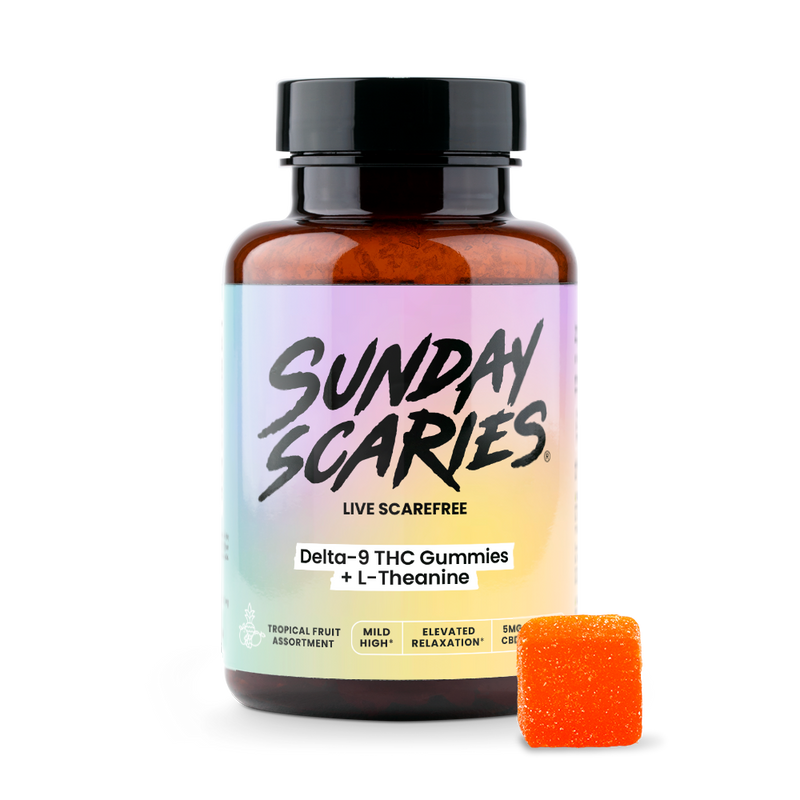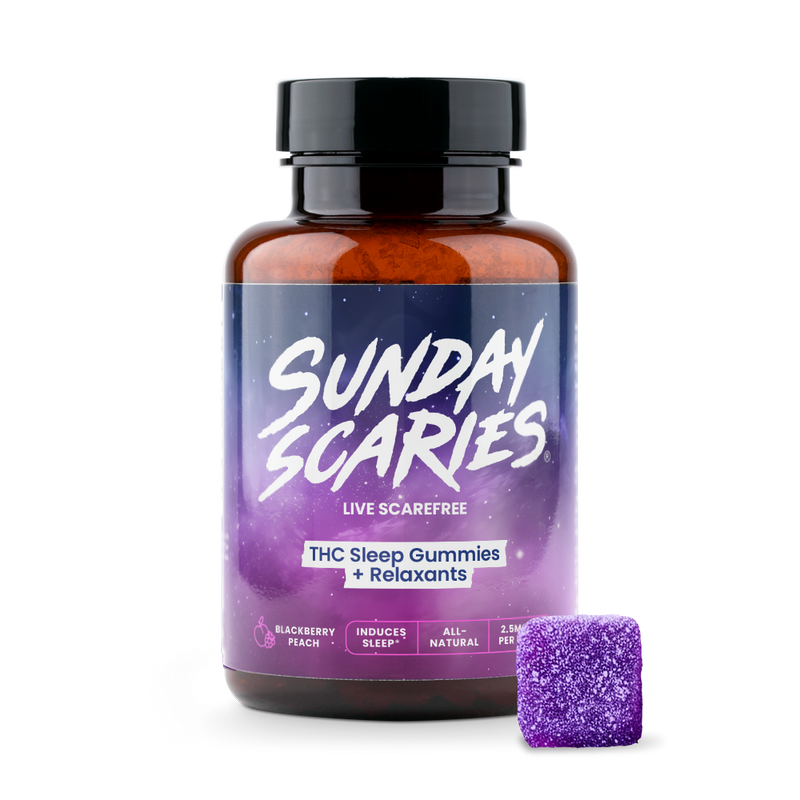
Are THC Gummies Legal in South Carolina?
Hemp-derived THC gummies are legal in South Carolina if they contain no more than 0.3% Delta-9 THC by dry weight and comply with federal guidelines, while both medical and recreational marijuana-derived THC gummies remain fully illegal in the state.
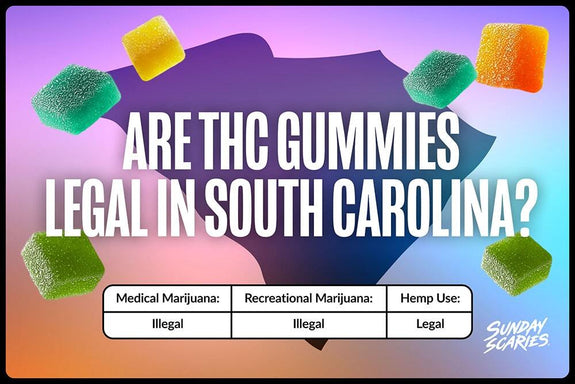
The legality surrounding THC gummies can be insanely confusing, especially with all of the different sources, minor cannabinoids and strains.
In South Carolina, the cannabis laws are strict but are also constantly evolving.
In this article, first we'll break down the differences between hemp-derived and marijuana-derived THC gummies so you have an understanding of the types of gummies, then we'll explain South Carolina’s specific laws (including the latest updates to HB 3924) and give you a simple guide on what’s legal and what’s not.
Hemp-Derived vs. Marijuana-Derived THC Gummies
Before diving into state laws, it’s important to understand the difference between two types of THC gummies:
-
Hemp-Derived THC Gummies
These gummies are made from industrial hemp, which is a type of cannabis plant that contains no more than 0.3% Delta-9 THC by dry weight. Under federal law (specifically the 2018 Farm Bill), hemp-derived products like these are legal, as long as they meet this THC limit. Hemp-derived THC gummies can contain Delta-9 THC, but some are also stuffed with other cannabinoids such as CBD, Delta-8, Delta-10, or THCA. Many states place additional restrictions on these "other cannabinoids", which we'll highlight in this article. -
Marijuana-Derived THC Gummies
These gummies are made from a type of cannabis plant that is cultivated for drug use and contains more than 0.3% Delta-9 THC. This includes both medical and recreational marijuana products. Marijuana-derived THC gummies are only legal in states that have passed medical or adult-use (recreational) cannabis laws. South Carolina unfortunately is not one of them.
South Carolina’s THC Gummy Laws by Type
Recreational Marijuana
Recreational marijuana is fully illegal in South Carolina. Possession, sale, and use of marijuana-derived THC edibles, including gummies, are strictly prohibited. Even small amounts of cannabis can result in criminal penalties.
Medical Marijuana
South Carolina does not have a comprehensive medical marijuana program. The only exception is a very narrow rule: under "Julian’s Law," where residents with severe epilepsy may access low-THC CBD oil (containing no more than 0.9% THC). Beyond this, medical marijuana gummies and other high-THC products remain illegal as well.
Hemp-Derived THC Gummies
Hemp-derived products are a different story. South Carolina allows the sale of hemp-derived gummies, like delta-9 euphoric gummies or delta-9 sleep gummies, as long as they comply with federal regulations (≤ 0.3% Delta-9 THC by dry weight).
However, the state is in the process of tightening its hemp regulations and going against the grain of the federal 2018 Farm Bill. That’s where bill HB 3924 steps in.
What is the HB 3924 Bill?
HB 3924 is a bill introduced in 2025 to create clearer rules for hemp-derived consumable products in South Carolina. This was proposed in order to protect consumers, but it also creates a ton of confusion around the legality of THC edibles so we'll clear the air for you.
Key Points of HB 3924 (as currently written):
-
The bill no longer sets limits on the percentage of THC based on an overall dry weight basis. This was a key section which has since been omitted due to confusion.
-
Instead, it focuses on per-serving and per-package limits:
-
Maximum 0.5 mg of Delta-9 THC per serving
-
Maximum 25 mg of total cannabinoids per serving (this includes CBD or other naturally occurring cannabinoids)
-
-
Hemp-derived products must be sold to consumers 21 and older only.
-
Products must be stored behind the counter or in a locked display.
-
The bill bans synthetic cannabinoids like Delta-8, Delta-10, and HHC.
IMPORTANT NOTE: As of June 2025, HB 3924 is still pending in the South Carolina Senate and has not yet been passed into law.
What This Means Right Now:
As it currently stands, hemp-derived Delta-9 THC gummies remain legal in South Carolina if they comply with the federal definition of hemp (≤ 0.3% Delta-9 THC by dry weight).
However, consumers should keep their eyes open and ears to the streets on the HB 3924’s restrictions, which may pass later this year.
In the meantime, synthetic cannabinoids like Delta-8 and Delta-10 are already in a legal gray area and are effectively banned under state interpretations of existing law.
Simple Legal Guide
Here’s an easy reference for where THC gummies stand in South Carolina today:
-
Medical Marijuana Gummies
❌ Illegal (no medical marijuana program exists beyond low-THC CBD oil for epilepsy) -
Recreational Marijuana Gummies
❌ Illegal (possession, sale, and use are prohibited) -
Hemp-Derived THC Gummies
✅ Legal — if the gummies:-
Contain ≤ 0.3% Delta-9 THC by dry weight
-
Are not made with synthetic cannabinoids (Delta-8, Delta-10, HHC, etc.)
-
Are sold to consumers 21+
-
Are prepared for upcoming HB 3924 restrictions (Sold in a locked display when purchased in in-store retail)
-
Final Thoughts
South Carolina remains one of the stricter states when it comes to cannabis laws:
-
Recreational and medical marijuana gummies are both illegal.
-
Hemp-derived Delta-9 THC gummies are legal—for now—but are facing tighter regulations under HB 3924.
-
Synthetic cannabinoids (Delta-8, Delta-10) are not permitted.
If you’re buying THC gummies in South Carolina, stick to reputable brands that comply with both federal and state hemp laws.
And keep an eye on the status of HB 3924. If it passes it will create new requirements for both retailers and consumers unless the stance is taken that they are protected under federal law.
Frequently Asked Questions
Are THC gummies legal in other states?
For a comprehensive list and detailed map of the legality of THC gummies, check out our master article: Are THC Gummies Legal?
***DISCLAIMER: The hemp industry is in constant flux and the regulatory landscape changes frequently. This is article is not legal advice. Always check with local laws before purchasing any cannabis-based products.

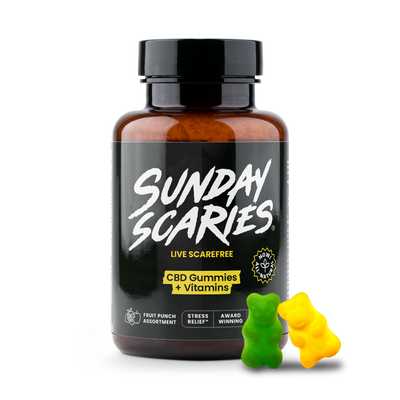 CBD Gummies
Stress Relief
CBD Gummies
Stress Relief
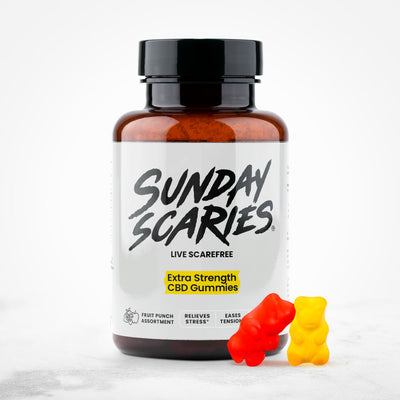 Extra Strength CBD Gummies
Stress Relief
Extra Strength CBD Gummies
Stress Relief
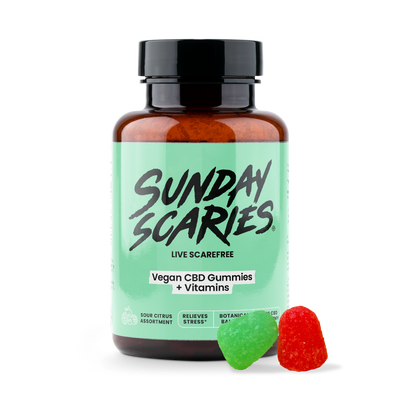 Vegan CBD Gummies
Stress Relief
Vegan CBD Gummies
Stress Relief
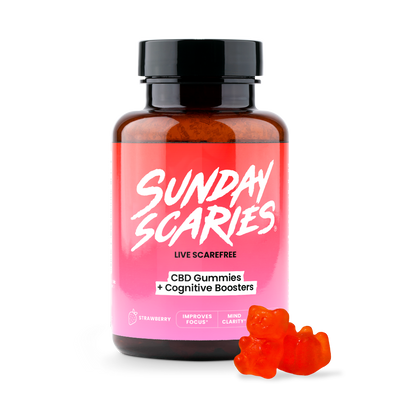 CBD Gummies for Focus
Focus Boost
CBD Gummies for Focus
Focus Boost
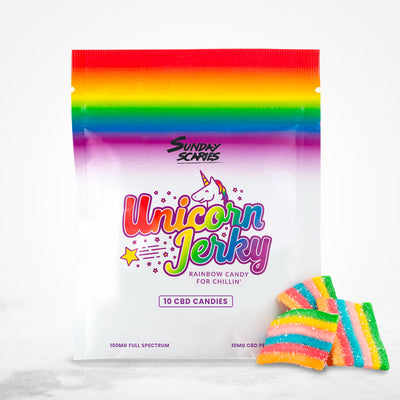 CBD Candy
Mood Lift
CBD Candy
Mood Lift
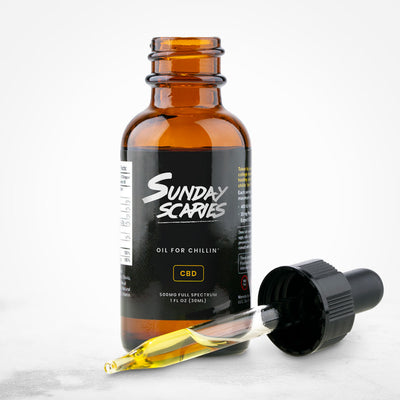 CBD Daytime Oil
Stress Relief
CBD Daytime Oil
Stress Relief
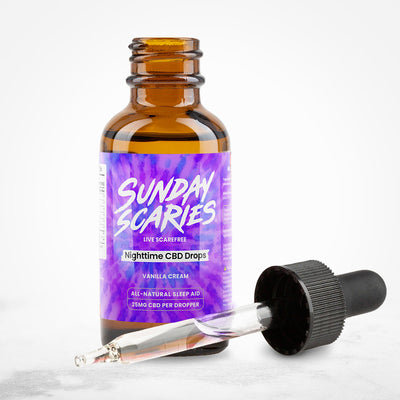 CBD Sleep Oil
Sleep Aid
CBD Sleep Oil
Sleep Aid
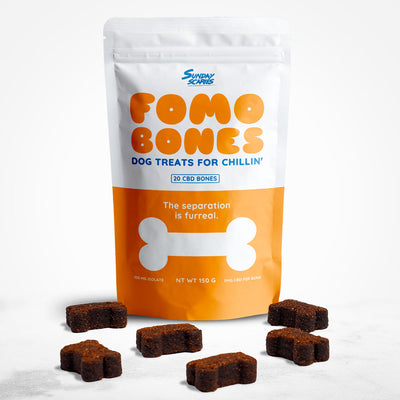 CBD Dog Treats
Stress Relief
CBD Dog Treats
Stress Relief
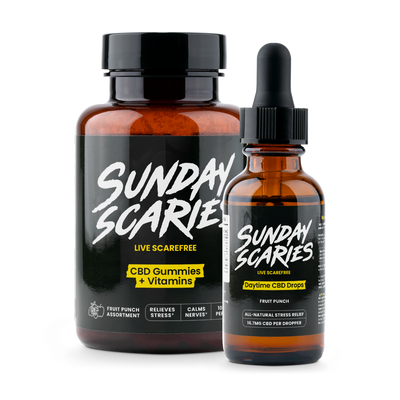 Side Piece Bundle
Stress Relief
Side Piece Bundle
Stress Relief
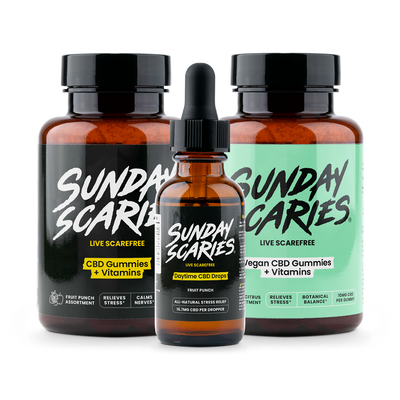 Rando Bundle
Stress Relief
Rando Bundle
Stress Relief
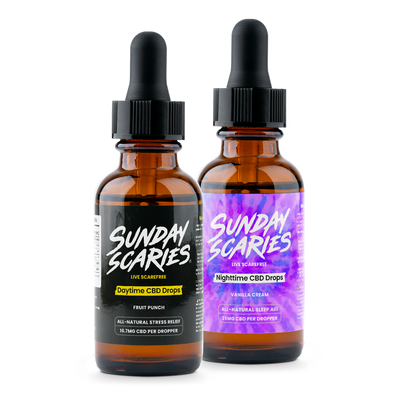 Sunrise & Sunset CBD Oil Bundle
Stress Relief
Sunrise & Sunset CBD Oil Bundle
Stress Relief
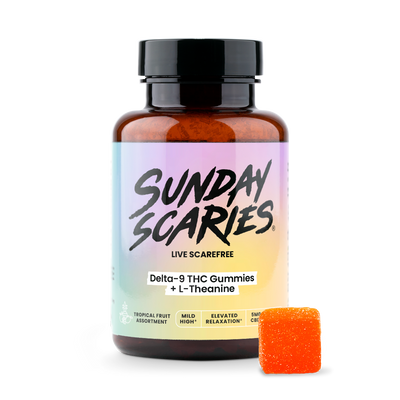 5mg Delta-9 Gummies
Euphoria
5mg Delta-9 Gummies
Euphoria
 10mg Delta-9 Gummies
Euphoria
10mg Delta-9 Gummies
Euphoria
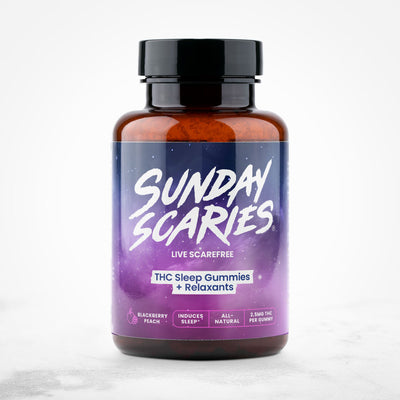 THC Gummies for Sleep
Sleep Aid
THC Gummies for Sleep
Sleep Aid
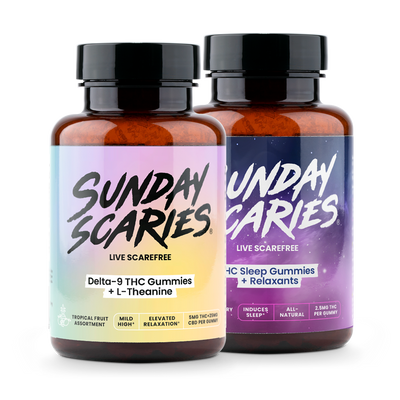 Day & Night THC Gummies Bundle
Stress Relief
Day & Night THC Gummies Bundle
Stress Relief
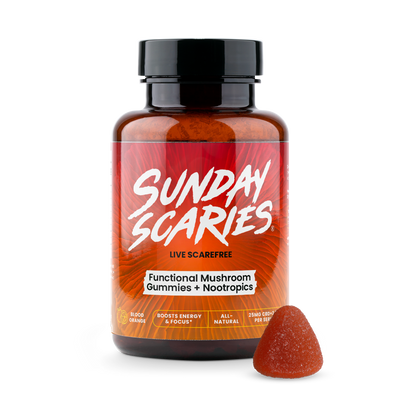 Mushroom Gummies
Focus Boost
Mushroom Gummies
Focus Boost
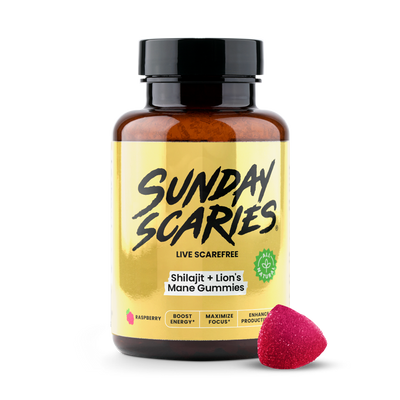 Shilajit Gummies
Focus Boost
Shilajit Gummies
Focus Boost
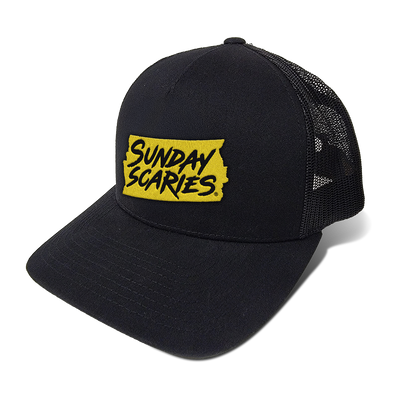 Sunday Scaries Hat
Sunday Scaries Hat
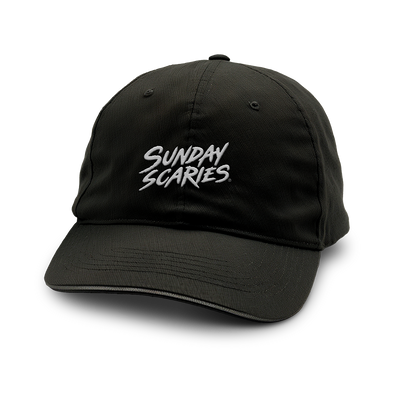 Sunday Scaries Dad Hat
Sunday Scaries Dad Hat
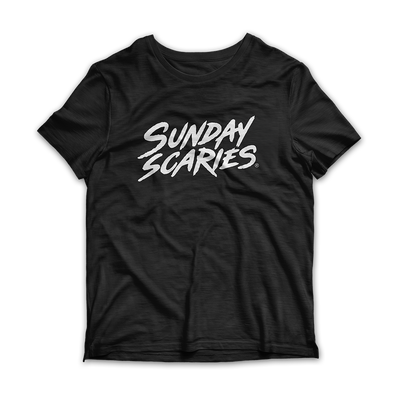 Sunday Scaries T-Shirt
Sunday Scaries T-Shirt
 Sunday Scaries Pocket Tee
Sunday Scaries Pocket Tee
 Sunday Scaries Tank Top
Sunday Scaries Tank Top
 Sunday Scaries Sweatshirt
Sunday Scaries Sweatshirt
 Sunday Scaries Blanket Jacket
Sunday Scaries Blanket Jacket
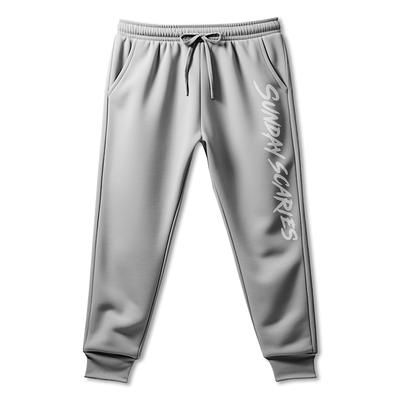 Sunday Scaries Sweatpants
Sunday Scaries Sweatpants

